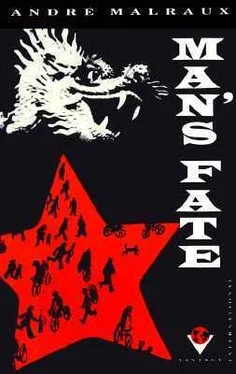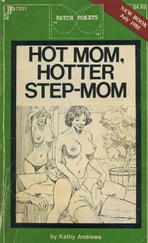“But,” said Ferral with a little astonishment (his questioner could not help knowing what he would answer), “there is no question of giving the major part of the funds to the Chinese gove^rnment. They will go directly from the American banks to the enterprises engaged to manufacture the rolling-stock, obviously. Otherwise, do you think the Americans would issue the loan?”
“To be sure. But Chiang Kai-shek may be killed or beaten; if Bolshevism rises again, the loan will not be i^ued. For my part, I don’t believe Chiang Kai-shek can maintain himself in power. According to information we have received, his downfall is imminent.”
“The Communists have been crushed everywhere,” answered Ferral. “Borodin has just left Hankow and is returning to Moscow.”
“The Communists, no doubt, but not Communism. China will never again become what she was, and, after Chiang Kai-shek’s triumph, new Communist waves are to be feared. ”
“My opinion is that he will still be in power in ten years. But there is no business that does not involve risk.”
(Only listen to your courage, he was thinking, which never tells you anything. And Turkey, when it did not reimburse you one cent and was buying war-implements with your money? You never have carried out a single great enterprise by yourselves. When you’re through prostituting yourselves to the State, you take your cowardice for wisdom, and believe that to be a Venus de Milo all you need is to be armless-which is going a little far.)
“If Chiang Kai-shek maintains himself in the government,” said the soft voice of a young representative with curly hair, “China will recover the autonomy of its customs. What is there to guarantee that, even granting M. Ferral all he assumes, his activity in China will not lose all its value on the day when Chinese laws will suffice to reduce it to nothing? Several answers can be made to that, I know. ”
“Several,” said Ferral.
“None the less the fact remains,” answered the representative who looked like an officer, “that this undertaking is uncertain, or, even admitting that it involves no risk, the fact remains that it involves a long-term credit, and, in truth, a participation in the activity of an enterprise. We all know that M. Germain nearly brought about the ruin of the Credit Lyonnais through having become interested in Anilin Dyes, which was nevertheless one of the best French ventures. Our function is not to participate in business ventures, but to lend money on guarantees, on short terms. Anything else is outside our field, it’s a matter for business banks.”
Silence, again. A long silence.
Ferral was wondering why the minister did not intervene. All of them, including himself, spoke a conventional and ornate language, like the ritual languages of Asia: there was no doubt, for that matter, that all this had a considerable Chinese flavor. That the guarantees of the Consortium were insufficient was indeed obvious; otherwise, why was he here? Since the war, the losses suffered by the French Reserve which had subscribed to the stocks or obligations of commercial enterprises recommended by the Establishments and the great commercial banks, amounted to about forty billions-ap- preciably more than the cost of the Treaty of Frankfort. A bad venture paid a higher commission than a good one, that was all. But a bad venture, to be accepted, had to be submitted by one of tbem-not by an outsider.
They would not pay, unless the minister formally intervened, because Ferral was not one of them. Not married: stories about women that had become known. Suspected of smoking opium. He had turned down the Legion of Honor. Too much pride to be either a conformist or a hypocrite. Perhaps great individualism could be fully developed only on a dung-heap of hypocrisy: Borgia was not a pope by accident. … It was not at the end of the eighteenth century among the French revolutionaries, drunk with virtue, that the great individualists would be found, but in the Renaissance, in a social structure which was Christianity, obviously.
“Monsieur le Ministre,” said the oldest of the delegates, swallowing both his syllables and his short mustache, white like his wavy hair, “it goes without saying that we are disposed to come to the aid of the State. That’s understood. You know it.”
He removed his monocle, and the gestures of his hands with slightly parted fingers became the gestures of a blind man.
“But after all, we would have to know how far we were going into it! I don’t say that each of us could not involve himself to the extent of, say, five million. Good.” The minister shrugged his shoulders imperceptibly. ‘'But that’s not the question, since the Consortium must reimburse at a minimum 2 so,ooo,ooo in deposits. And then, what? If the State believes a crash of this magnitude would be serious, it has its own means of obtaining funds; to save the French and Annamite depositors, the Bank of France and the General Government of Indo-China are after all the ones who should be called upon rather than we, who also have our depositors and our stockholders. Each one of us is here in the name of his Establishment. ”
(It being understood, Ferral was thinking, that if the minister made it clear that he wants the Consortium to be refloated, there would no longer be either depositors or stockholders.)
“. Who among us can affirm that his stockholders would approve a loan made for no other purpose than to maintain a tottering enterprise? What these stockholders think, Sir-and not they alone-we know very well; they think that the market must be made sound, that enterprises that are not viable must blow up; that to maintain them artificially is the worst service one can render to all. What becomes of the efficacy of competition, which is the very life of French commerce, if doomed enterprises are automatically maintained?”
(My friend, thought Ferral, your Establishment demanded a thirty-two per cent raise in tariffs from the State, just last month; to facilitate free competition, no doubt.)
“. And so? Our business is to loan money on guarantees, as has very justly been observed. The guarantees which M. Ferral offers. You have heard M. Ferral himself. Will the State substitute for M. Ferral in this case and give us the guarantees against which we will grant the Consortium the funds it needs? In other words, is the State appealing to our loyalty without offering any compensation, or does it ask us-the State and not M. Ferral-to facilitate an operation of the Treasury, even on a long term? In the first case, of course, it can count on our loyalty, but after all we are bound to consider our stockholders’ interests; in the second, what guarantees does it offer us?”
A complete ciphered language, Ferral was thinking. If we were not engaged in playing a comedy, the minister would answer: “I appreciate the comic value of the word ‘devotion.’ Your principal benefits come from your relations with the State. You live on commissions, which determine the importance of your establishment, and not on independent activities. The State has given you this year one hundred million, in one form or another; it is taking back twenty-bless its name, and calling it quits.’’ But there is no danger of that.
The minister pulled out from a drawer of his desk a box of soft caramels, and passed it around. Each ate one, except Ferral. He knew now what the delegates of the
Establishments wanted: pay, since it was impossible to leave this cabinet without granting the minister something, but pay as little as possible. As for the latter. Ferral waited, assured that he was busy thinking: “What would Choiseul have appeared to do in my place?” Appeared: the minister did not ask the great lords of the kingdom for lessons in will, but in behavior or in irony.
Читать дальше











